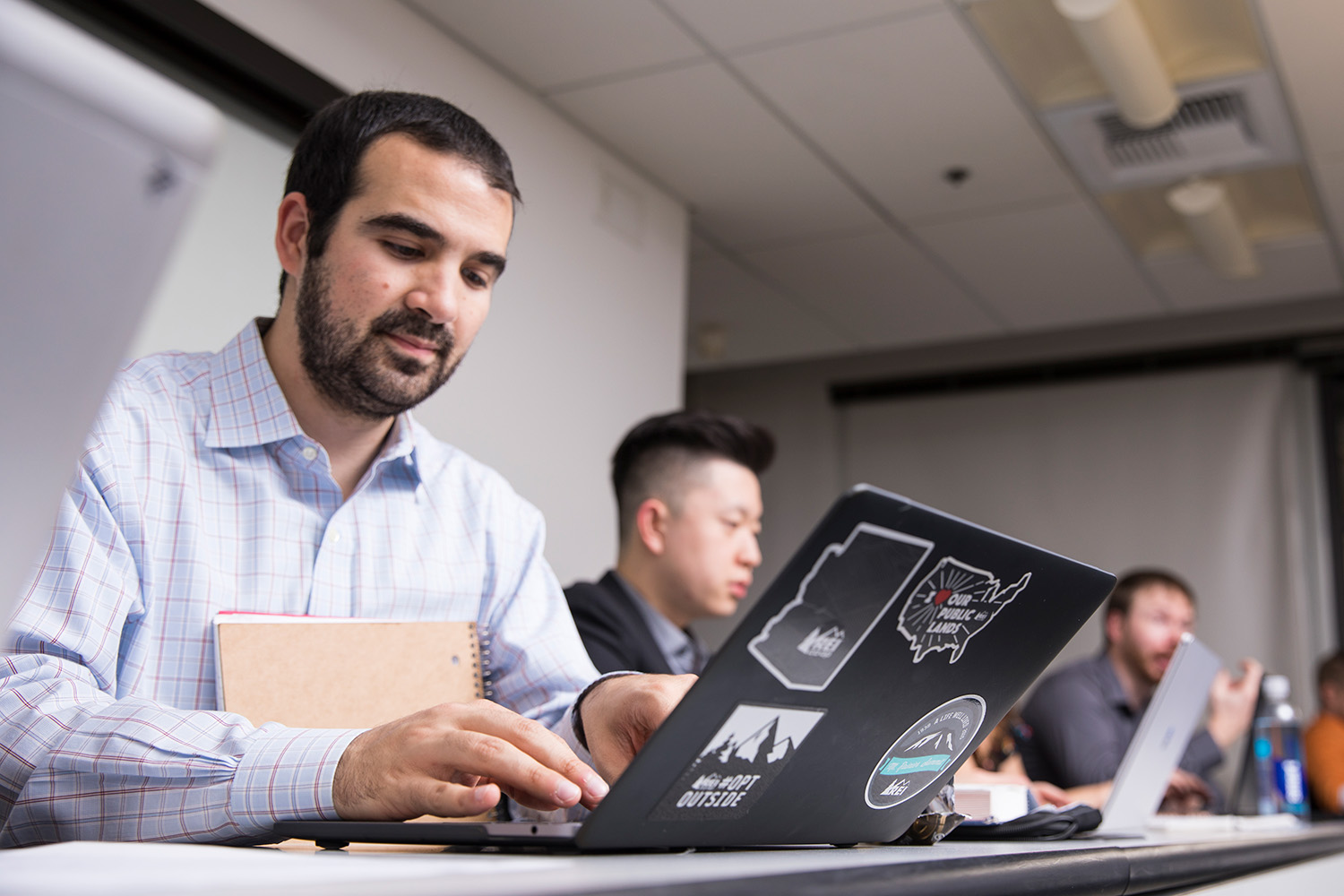
Data Science for Materials Engineering
LEARN MORE: Info session postponed, check back for new date.
NEXT START DATE: September 30, 2026
DEADLINE: August 1, 2026
Program overview
The development of new materials is crucial to advancing technology in fields such as air and space travel, renewable energy and energy storage, transportation, and electrical vehicle production, as well as computing tools. Fortunately, emerging fields such as data science, AI, cloud computing, quantum computing, computational simulation, and automation offer new opportunities to accelerate the materials development process. This program will provide students with a solid foundation in materials science and engineering fundamentals, while also offering hands-on training in data science techniques for materials development. Students will gain valuable skills in the use of versatile methods and computational tools for solving materials-related challenges.
This certificate program focuses on the application of data science in engineering, in particular to data for materials science and engineering. Data in the field of materials science possesses its own unique characteristics. Leveraging data science and machine learning techniques can significantly accelerate advancements in materials research. However, it is crucial to note that the application of data science in materials science data necessitates specialized techniques. This curriculum is designed to encompass both fundamental aspects of Materials Science and techniques from Data Science.

Designed for working professionals
It is anticipated that students will be able to complete the courses within one year. However, the program is also designed to accommodate working professionals who may prefer to pace their learning and complete the program over several years.

Earn graduate credit
By completing this certificate program, you can earn graduate credit. Learn more about credit options.

Learn in-person or online
*You can choose to attend classes either online or in person each week. Classroom sessions are held at the UW Seattle campus. Online classes are streamed live via web conferencing, and all sessions are recorded for later review.
Learning outcomes
- Understand the fundamentals of materials and be able to describe microstructure-property-processing relationships for various materials types and be able to identify various data types and data structures associated with these relationships.
- Develop the ability to efficiently organize and manage materials datasets for further applying data science methods to them.
- Learn to apply data science methods, including machine learning models to data, to different types of materials data, be able to interpret the outcome of it, and further correlate analytical results with the fundamental underlying causes of observed outcomes.
- Master different computational simulation methods, gain the skills to choose and deploy suitable simulation tools for specific materials research problems based on the objective of the study and physical scale of the problem, and leverage machine learning or other data science methods to optimize the process and enhance results.
- Utilize different computational resources and methods, with an emphasis on cloud computing methods, for the analysis of materials data and be able to automate the workflow for materials science data analysis.
- Cultivate critical thinking skills to recognize and exploit the potential of artificial intelligence in advancing the materials science research for the future.
Courses
Complete the courses listed below to earn the certificate. You may be able to take individual courses without enrolling in the certificate program.
Certificate stackability
Students can choose to take the certificate independently, or combine it with another eligible certificate to create a Master of Engineering in Multidisciplinary Engineering degree or a Master of Science in Artificial Intelligence and Machine Learning for Engineering degree.
Application requirements
Your application must include a resume or curriculum vitae, your statement of purpose and an unofficial transcript. Students must also demonstrate proficiency in basic programming concepts and mastery of at least one programming language.
Application requirementsApplication deadline: August 1, 2026
Our next program starts on September 30, 2026.
Application opens February 1, check back for details.
Meet your instructors
Assistant Professor, UW Materials Science & Engineering
Ting received a Ph.D. in physics from the University of California, Berkeley in 2018. His research employs quantum physics, advanced materials modelling techniques, and high-performance computing to study materials science and condensed matter physics, with special focus on the electronic structures of materials, excited-state phenomena, and light-matter interactions.
Professor, UW Materials Science & Engineering
Bruce received a Ph.D. in inorganic chemistry from Northwestern University in 1996. He researches nanostructures and nanoscale fabrication, such as electronics fabrication at the molecular level and novel technologies for nano-lithography.
Associate Teaching Professor, UW Materials Science & Engineering
Luna earned her Ph.D. in Materials Science and Engineering and Nanotechnology from the UW in 2006. Her research focuses on Data Science and its application in materials informatics, and the computational study of materials' electronic structure. She is also the department's industrial relationship coordinator and department director of the internship program.
Associate Professor, UW Materials Science & Engineering
Juan Carlos holds a physics Ph.D. from the University of California Davis. His research involves applying analytical techniques in electron spectroscopy to study the structure, electronic, magnetic, thermal, optical and topological properties of materials.
Director of Research & Education, UW eScience Institute
David has a Ph.D. in medicinal chemistry / biomolecular structure & design from the UW and a B.S. in computer science from Drexel University. His major research areas include structural, systems and synthetic biology and more recently molecular data science applications in energy, including perovskites, electrolytes, and other materials for energy.